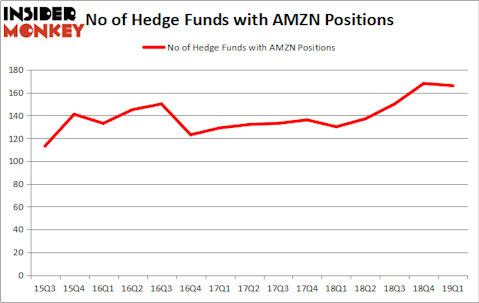Insider Monkey tracks hedge funds, billionaires, and prominent value investors for a very simple reason: their consensus picks generally outperform the market. We aren’t the only research shop broadcasting this fact using a bullhorn. Here is what strategist Ben Snider said in Goldman Sachs’ periodic hedge fund report:
“Despite the strong track record of popular hedge fund stocks, investors often view high ownership as a negative trait when evaluating stock prospects. Clients often ask us to include hedge fund ownership data in stock screens, expressing a preference for buying ‘under-owned’ stocks.”
“In fact, during the past decade hedge fund popularity has been a more useful criterion for selecting stocks than valuations…. The signals from hedge fund popularity and valuation have been particularly useful in combination, especially for investors with slightly longer investment horizons. During the past decade, popular stocks have generally outperformed unpopular stocks across both 3- and 12-month investment horizons” Snider concluded.
It may sound like I am tooting my own horn, but Insider Monkey’s quarterly newsletter is actually superior to Goldman’s report. That’s because we separated the hedge fund favorites into long and short buckets. Our long bucket of hedge fund favorites returned 34.1% in the first half of 2019, whereas our short bucket of hedge fund favorites gained 21.4% during the same period. Hedge funds’ favorite top 20 stocks, on the other hand, returned 24% so far in 2019. You could have beaten the S&P 500 Index funds by 5.7 percentage points by investing in hedge funds’ top 20 picks in 2019, whereas you could have outperformed the index funds by 15.8 percentage points if you invested in our top hedge fund picks. You can try out our newsletter free of charge for 14 days to see hedge funds’ latest best stock picks.
The #3 most popular stock among the 743 hedge funds tracked by Insider Monkey was Amazon.com Inc (NASDAQ:AMZN). Amazon was the second most popular stock among hedge funds at the end of December (see the 30 most popular stocks among hedge funds).
We have to warn you against indiscriminately imitating hedge funds’ all stock picks. Hedge funds’ top 20 stock picks outperformed the S&P 500 Index funds by 5.7 percentage points this year, but hedge funds’ top 500 stock picks had the same return as the S&P 500 Index this quarter. Investing in a hedge fund’s 35th best idea doesn’t give you the same return as investing in a hedge fund’s best idea.

We’re going to analyze the new hedge fund action surrounding Amazon.com, Inc. (NASDAQ:AMZN).
What have hedge funds been doing with Amazon.com, Inc. (NASDAQ:AMZN)?
At the end of the first quarter, a total of 166 of the hedge funds tracked by Insider Monkey held long positions in this stock, a change of -1% from the fourth quarter of 2018. On the other hand, there were a total of 130 hedge funds with a bullish position in AMZN a year ago. So, let’s examine which hedge funds were among the top holders of the stock and which hedge funds were making big moves.

Among these funds, Citadel Investment Group held the most valuable stake in Amazon.com, Inc. (NASDAQ:AMZN), which was worth $5221.3 million at the end of the first quarter. On the second spot was Fisher Asset Management which amassed $2434.4 million worth of shares. Moreover, Eagle Capital Management, Tiger Global Management, and Lone Pine Capital were also bullish on Amazon.com, Inc. (NASDAQ:AMZN), allocating a large percentage of their portfolios to this stock.
Since Amazon.com, Inc. (NASDAQ:AMZN) has experienced bearish sentiment from the aggregate hedge fund industry, it’s safe to say that there lies a certain “tier” of hedgies that slashed their positions entirely last quarter. Interestingly, Daniel Sundheim’s D1 Capital Partners sold off the biggest investment of all the hedgies tracked by Insider Monkey, comprising an estimated $426.3 million in call options. Andrew Hahn’s fund, Ursa Fund Management, also sold off its call options, about $300.4 million worth. These moves are important to note, as aggregate hedge fund interest was cut by 2 funds last quarter.
Let’s now take a look at hedge fund activity in other stocks – not necessarily in the same industry as Amazon.com, Inc. (NASDAQ:AMZN) but similarly valued. We will take a look at Alphabet Inc (NASDAQ:GOOGL), Alphabet Inc (NASDAQ:GOOG), Berkshire Hathaway Inc. (NYSE:BRK-B), and Facebook Inc (NASDAQ:FB). This group of stocks’ market values are similar to AMZN’s market value.
| Ticker | No of HFs with positions | Total Value of HF Positions (x1000) | Change in HF Position |
|---|---|---|---|
| GOOGL | 147 | 11115409 | 1 |
| GOOG | 133 | 13597514 | -8 |
| BRK-B | 91 | 20086059 | 4 |
| FB | 176 | 18349790 | 15 |
| Average | 136.75 | 15787193 | 3 |
View table here if you experience formatting issues.
As you can see these stocks had an average of 136.75 hedge funds with bullish positions and the average amount invested in these stocks was $15787 million. That figure was $19400 million in AMZN’s case. Facebook Inc (NASDAQ:FB) is the most popular stock in this table. On the other hand Berkshire Hathaway Inc. (NYSE:BRK-B) is the least popular one with only 91 bullish hedge fund positions. Amazon.com, Inc. (NASDAQ:AMZN) is not the most popular stock in this group but that’s only because of Facebook. Our calculations showed that top 20 most popular stocks among hedge funds returned 6.4% in Q2 and outperformed the S&P 500 ETF (SPY) by more than 2 percentage points. Hedge funds were also right about betting on AMZN, though not to the same extent, as the stock returned 6.3% during the same time frame and outperformed the market as well. Amazon shares also returned 26.1% year-to-date and outperformed the market by nearly 8 percentage points.
Overall, hedge funds’ favorite 3 stocks in 2019 delivered an average return of 35.3%. That’s 17 percentage points better than investors who were investing in S&P 500 ETF (SPY).
Disclosure: None. This article was originally published at Insider Monkey.





